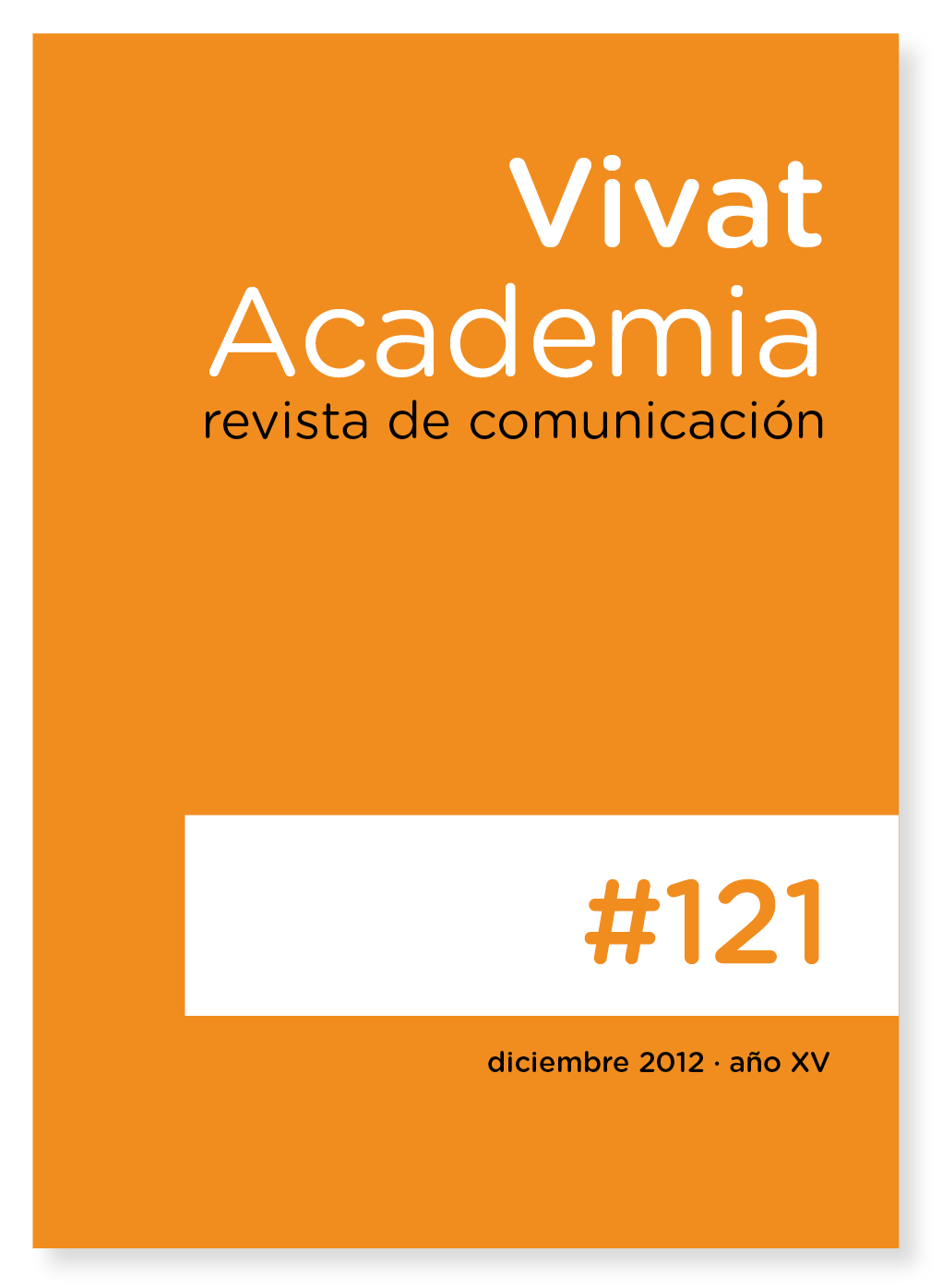Objetivos pedagógicos básicos en la enseñanza de la ética de la comunicación
Contenido principal del artículo
Resumen
Descargas
Detalles del artículo
Citas
Barger, W. y Elliot, D. (2000). “Journalism ethics classes: Do they make better journalists?” En Quill, 88, (7), p. 24-25.
Barroso, P. (1985). Fundamentos deontológicos de las Ciencias de la Información. Barcelona: Mitre.
Bivins, T. H. (1993). A worksheet for ethics instruction and exercises in reason. En Journalism Educator, 48, (2), p. 4-16.
Black, J. (1992). “Media Ethics”. En Murray, M. D. y Ferri, A. J. (eds.). Teaching Mass Communication. A Guide to Better Instruction (pp. 235-255). New York: Praeger.
Braun, M. J. (1999). “Media Ethics Education: A Comparison of Student Responses”. En Journal of Mass Media Ethics, 14, (3), p. 171-182.
Callahan, D. (1980). “The goals in the teaching of ethics”. En Callahan, D. y Bok, S. (eds.) Ethics Teaching in Higher Education, (pp.61-80). The Hastings Center Series in
Ethics. New York: Plenum Press.
Callahan, D. y Bok, S. (eds.) (1980). Ethics Teaching in Higher Education. New York:Plenum Press.
Christians, C. G. (1978). “Variety of Approaches Used in Teaching Media Ethics”. En Journalism Educator, 1, (1), p. 3-8, 24.
Christians, C. G. y Covert, C. L. (1980). Teaching Ethics in Journalism Education. Hastings-on-Hudson, New York: The Hastings Center.
Christians, C. G. y Lambeth, E. (1996). “The Status of Ethics Instruction in Communication Departments”. En Communication Education. 45, (3), p. 236-244.
Christians, C. G.; Rotzoll, K. B. y Fackler, M. (1998). Media Ethics: Cases and Moral Reasoning. White Plains, New York: Longman.
Church, G. F. (1939). “Analysis of Social Relationships in Teaching Journalistic Ethics”. En Journalism Quarterly, 16, (2), p. 172-174.
Day, L. A. y Butler, J. M. (1989). The Teaching of Ethics and Moral Reasoning in Scholastic Journalism: The Pedagogical Imperative. Paper presented at the midwinter Meeting of the
Association for Education in Journalism and Mass Communication, Secondary Education Division. St. Petersburg, FL. Manuscrito mecanografiado.
Elliot, D. T. (1984). Toward the Development of a Model for Journalism Ethics Instruction.
Ph. D. dissertation, Faculty of the Graduate School of Education, Harvard University.
The Hastings Center (1980). The Teaching of Ethics in Higher Education. New York: The Hastings Center.
Johannesen, R. L. (1988). “What Should We Teach about Formal Codes of Communication Ethics”. En Journal of Mass Media Ethics, 2, (1), p. 59-64.
Lambeth, E.; Christians, C. y Cole, K. (1994). “Role of the Media Ethics Course in the Education of Journalists”. En Journalism Educator, 49, (3), p. 20-26.
Merrill, J. C. (1997). Journalism Ethics: Philosophical Foundations for News Media. New York: St. Martin´s.
Payne, N. (1992). Teaching the ”Unteachable”. Toward a model for ethics instruction in Canadian university schools of journalism. Ph. D. dissertation. Ottawa, Ontario: Faculty of
Graduate Studies and Research, Carleton University,
Peck, A. L. (2001). Foolproof or Foolhardy? Presenting Ethical Theory to Journalism
Students. Ph. D. dissertation. Ohio University Department of Philosophy and College of Arts and Sciences.
Reis, R. (2000). Teaching Media Ethics in a Multicultural Setting. En Journal of Media Ethics, 15, (3), p. 194-205.
Sonnenberg, U. y Thomas, B. (1996). Journalistic decision-taking in Europe case by case.
Maastricht: European Journalism Centre.
Suárez, J. C. (2001). Principios de ética profesional: a propósito de la actividad informativa. Madrid: Tecnos.
Thomas, B. (2000). How Journalism Ethics is Taught Around Europe: Three Examples. En Pattyn, B. (ed.). Media Ethics Opening Social Dialogue (pp. 375-389). Lovaina: Peeters.
Vázquez, F. (1980). Ética. Planteamientos y horizontes actuales. Zaragoza: Luis Vives.
Van Horn, T. L. (1997). Teaching Ethics in Communication Courses. PH. D. dissertation. Fullerton: Faculty of California State University.





